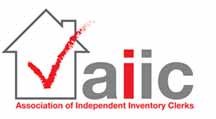Ashworth Group was established in 2001 with the primary aim of establishing itself as the leading Residential Inventory specialist within London and surrounding areas. We are now a market leader and have maintained the highest levels of standards and expertise over the last 22 years.
About Us

Our Services
Inventory Services
Located in Buckhurst Hill, Essex, we provide professional and comprehensive coverage of London inventories. Our experienced inventory clerks can provide inventory services for a wide range of properties, from studio flats to houses.

Cleaning services in London and Essex
Ashworth Group provides a full range of professional cleaning services. Whether it is a light-clean or a full-clean for a new tenant or sale, we can meet all your cleaning needs. We will bring the shine back to your property.

Safety & Efficiency
Ashworth Group’s certified technicians can prepare a range of domestic reports for landlords and tenants. Whether a legal requirement, requirement for insurance coverage or other purposes, Ashworth Group’s professionals can prepare the following domestic reports for you:


Why choose us?
Ashworth Group is a multi-award-winning company that specialises in providing professional inventory, cleaning, and domestic reporting services.
Accredited and recognized by the AIIC, our detailed structured approach follows efficient quality procedures and guarantees industry best practices. Contact us to book the service that you require.
Contact UsHow can we help?
Ashworth FAQ+
How do I make a booking with Ashworth Group online?+
You can book jobs on our Ashworth Group’s dashboard as a guest without having an account with us. Click https://www.ashworth-group.co.uk/booking-request/ to make your online booking.
Do Ashworth Group staff wear PPE on appointments?+
We take the safety of all of our clients and staff very seriously. All our staff are equipped with the correct PPE equipment to ensure that they can carry out their jobs safely.
Inventory FAQ+
Why do I need a Property Inventory?+
Renting property can be a tricky business, for both landlords and tenants. A marked wall, maybe a broken window or ripped carpet can cost the tenant a hefty deposit. The landlord may feel money needs to be spent on the property before it can be rented out again.
A professionally drawn up Inventory Report will protect both tenant and landlord against any unnecessary disputes at the end of the tenancy. If there is insufficient information or no inventory then there is no evidence on the condition of the property prior to the commencement of the tenancy. Without documented evidence it would be difficult to make a claim against the tenant for damages, especially in the event that that tenant contests the claim.
Why use an independent Inventory service?+
A professionally prepared independent Inventory provides a complete description of a property, and its contents. Everything is included, from the type and condition of interior decoration to the number of saucers, and whether any of them are chipped.
Inventories are equally important for unfurnished and furnished properties. To have it prepared by an independent inventory service ensures impartiality and gives confidence to both the landlord and the tenant in the event of a dispute.
What is a Property Inventory and Condition Report?+
An inventory report is a document which lists the contents (And the condition of the contents) of the property. This includes everything: the furniture, fixtures and fittings, doors, walls, ceilings, lights, flooring and so on.
It is usually carried out at the start of a tenancy and details the state of the items and property at that time. When signed by the landlord and tenant it becomes a legally binding document and an integral part of the rental agreement.
When is a Landlords Inventory Report most effective?+
Property Inventory Reports are most effective when both the tenant and landlord have full confidence in them. In our experience, that normally only happens when the inventory is completed by an independent specialist.
Of course, there’s little that you can do when a tenant takes a furnished property and returns it unfurnished after disappearing with the contents. However our research shows that it’s not just the big things that upset agents and landlords, the little ones can cause headaches too. Think about scuffing on the wall or nicotine stains on the ceiling of a non-smoking flat.
At Ashworth Group, we help take the hassle out of renting or letting so that you can rent in confidence.
Do I still need an inventory report if the property is unfurnished?+
Yes, because the inventory report will also point out the condition of the walls, curtains, carpets, bathroom, kitchen appliances and the property as it stands.
Some landlords believe that if their property is unfurnished, then they do not need an inventory report, because there is very little that can be stolen, broken or damaged.
However, just think about your beautiful white walls being painted pink and purple and the tenant leaves them in that state when they leave!
What are the benefits of allowing Ashworth Group to take care of your inventory needs?+
Allowing us to take care of your inventory needs provides you with several distinct benefits:
- Create More Time - Our service gives you more time to concentrate on more urgent matters. We take care of everything from booking the appointment to hand delivering the Inventory Report to your premises.
- Control Your Costs - Using Ashworth for your inventory needs will cost you substantially less than employing a full time inventory clerk.
- Never Miss an Opportunity - We have several inventory clerks available to you at short notice across a wide range of London areas – ensuring we can meet your needs as and when they arise.
- Records Are Always Retained - We scan and electronically store copies of all relevant Inventory paperwork meaning you will always have quick access to any past inventories should you need them.
- Digital Photography - We always provide you with Digital photographs on all our reports.
Inventory Sample
Using an Independent Inventory provider like Ashworth Group is beneficial in many ways. The most obvious being that you do not need to invest a significant amount of time in creating an inventory yourself.
Instead, you can carry on running your business and focussing on what's important to you, whilst having the peace of mind that a qualified professional is going to get the job done right.
Why use photographs in a property inventory?+
In our experience the best way to avoid misinterpretations and disagreements is by combining the Inventory Report with digital photographs. At Ashworth Group we take on average over 100 photographs per inventory and store any photos not used in the inventory on our secure server for future reference.
The photos identify all marks, scratches, stains and any damage. These photographs complement the written description of our Property Inventory Report and thus helps to avoid any unnecessary disputes.
What if I have a dispute?+
Should a dispute arise about the amount of deposit to be returned, the protecting scheme will involve the Alternative Dispute Resolution (ADR) service. If both landlord and tenant agree to use the ADR to resolve the dispute, they are agreeing to be bound by its decision.
In the case of a custodial scheme, the scheme will continue to hold the amount until the ADR or the courts come to a decision.
In the case of insurance schemes, the landlord must hand over the disputed amount to the scheme for safekeeping until the dispute is resolved. The scheme administrator will be responsible for returning the final amounts to landlord or tenant in accordance with the decision of the ADR or the courts.
If a landlord fails to transfer the disputed amount into the scheme, the scheme will pay the amount due to the tenant decided by the ADR or the courts and the scheme will proceed to recover the money from the landlord.
Cleaning FAQ+
How do I know that Ashworth Group can provide my cleaning requirements?+
With our experience in tackling difficult cleaning projects we can review your needs and are confident that we can provide a bespoke cleaning solution tailored for your requirements and budget.
At Ashworth Group, we have built a reputation for quality cleaning and value for money. We are happy to provide a list of references from satisfied customers who have benefited from our high quality and specialist cleaning services.
Are the cleaning products you use within a property industrial strength?+
Wherever possible our cleaning operatives use industrial strength but bio-degradable, eco-friendly cleaning products within residential properties. These are free from harsh chemicals to minimize the risk of causing allergy symptoms. Rest assured that we will use the most appropriate products to leave your property smelling clean and refreshing every time.
Do I need to do any preparation before you clean my property?+
We do recommend that tenants tidy any personal belongings or important documents prior to our undertaking any cleaning in an occupied property. Anything that could be a potential obstacle or hazard will be identified and moved where possible before we commence cleaning.
Do Ashworth Group provide a guarantee for their Cleaning?+
As per the Service Gurantee section in our Terms & Conditions, our Cleaning Services are covered by our 48 hour guarantee. If our operatives have missed a part of the property or you are unhappy with an area that has been cleaned, providing that you contact us within 48 hours of the booking and we agree that the request is founded and legitimate, we will arrange for them to re-attend the property and rectify the problem as best as possible.
EPC FAQ+
What exactly is an Energy Performance Certificate and why do I need one?+
In accordance with the European Energy Performance of Buildings Directive, by 2009 all buildings in the UK that are constructed, sold or rented were required to have to have an Energy Performance Certificate (EPC).
An EPC gives information on the energy usage, running costs and potential improvements that could be made to reduce the energy usage and carbon dioxide emission of the property. An assessment is carried out by an accredited Domestic Energy Assessor who takes the information and processes it with specialist software which gives a rating for your property.
We need an EPC because our environment is under threat from climate change and a major contributor to this change is the burning of fossil fuels for energy production. Reducing our Carbon Dioxide emissions by ensuring we use energy efficiently in the home, work and whilst travelling can help reduce the effects of climate change
The first efficiency ratings were for electrical appliances to enable the consumer to make an informed decision on their purchase with regards to climate change and running costs. This rating system was then further extended to buildings in the form of an Energy Performance Certificate which gives the owner or potential purchaser an indication of the energy performance and running costs of the property with the additional benefit of showing where improvements can be made.
As stated earlier, all homes bought, sold or rented now require an EPC.
Who needs an EPC?+
The EPC is required by law when a building is constructed, sold or put up for rent. Once you have an EPC for a home for sale, it is valid for three years.
- Sellers or buyers of homes - All sellers of homes need to ensure that they provide a Home Information Pack which includes an EPC for potential buyers.
An EPC must be made available to a potential homebuyer free of charge.
- Builders - An EPC needs to be provided to buyers of newly built properties.
- Landlords - If you are a landlord, you’ll need to make an EPC available to prospective tenants the first time you let a home after 1 October 2008. An EPC is only required for a property which is self-contained, and is valid for 10 years.
An EPC isn’t required when a tenant rents a room and shares facilities.
- Tenants - If you are interested in renting a property then an EPC must be made available to you free of charge. An EPC is only required for a property which is self-contained, and is valid for 10 years.
If you are a prospective tenant, an EPC isn’t required when you rent a room and share facilities.
Even if you do not fall into the above categories, you can still apply for and receive an EPC. This may be because you want to know what the energy efficiency of your home is, and make improvements suggested by the recommendation report.
Price - For information on our prices to conduct an EPC report at your property please contact us on 0845 539 0101 or email [email protected]
What goes on during a domestic energy assessment?+
A domestic energy assessment of your home will involve both an internal and external inspection of the property. For the purposes of obtaining an Energy Performance Certificate, they can only be undertaken by a fully accredited Domestic Energy Assessor (DEA) or Home Inspector.
When the DEA arrives, he/she will need to inspect, and make note of, the following property details:
- The year of property construction.
- Walls and roof construction.
- Signs of wall-cavity insulation.
- Energy-saving "green" devices (Such as solar panels, for instance).
- Number of double glazed windows and when they were installed.
- Number of open or closed fireplaces.
- Make and model of boiler and the type of flue and fuel used.
- Number of low energy light-bulbs.
- Type of heating system used and controls. (Wall thermostat etc.)
- Roof insulation and thickness.
- Measure the thickness of the hot water cylinder jacket or foam.
- Check for excessive window area in larger houses and take measurements of conservatories and extensions.
- Note the number of habitable rooms that are heated.
- Measure the internal or external areas of the home.
- Sketch and make notes relating to home and room layout
The assessor will typically be on site for an hour although this can of course vary depending on the property. Your certificate will normally be completed within 48 hours.
What else does an EPC tell you?+
The ratings are measured using the same calculations for all homes, so you can compare the energy efficiency of different properties.
Part of the EPC is a report which will list the potential rating that your home could achieve, if you made the recommended changes.
Who will have access to my EPC?+
The details of an EPC are not in the public domain. Your property's EPC will be stored in a central database along with a unique identifying number. Access to the record can only be made via this reference number which is available only to the owner/seller and potential buyers.
The owner of the property will have a copy of the EPC and potential buyers or tenants will gain access to it via the above mentioned database.
Previously a copy was provided in the Home Information Pack, but that was repealed in 2010.
What if my EPC rating is bad?+
Although a domestic energy assessment is mandatory, you are not under any obligation to bring the property up to any minimum standard.
The Energy Performance Certificate is very useful to the owner on advising where improvement can be made to the property and gives a guide to the associated energy costs.
Can I produce my own EPC?+
No, an EPC can only be provided by a qualified Domestic Energy Assessor or Home Inspector.
Where can I find out more information?+
Housing information:
Department for Communities & Local Government
http://www.communities.gov.uk/housing/buyingselling/homeinformation/
Housing and Local Services
https://www.gov.uk/browse/housing
Energy Performance Certificate information
Direct - EPC Home Page
Houses in Multiple Occupation (HMO)
Gas Safety Regulations
Electrical Safety Regulations
www.dti.gov.uk (PDF)
Furniture and Furnishings (Fire) (Safety) Regulations
www.dti.gov.uk (PDF)
How to improve your EPC Rating?+
When a Domestic Energy Assessor is carrying out an Energy Performance Certificate review, the software used has to make common assumptions about energy use and there is nothing that we can do to change this.
However, the assessor might need to make some assumptions themselves and when this occurs they’re obliged to usually assume the worst. For example when a light fitting is discovered to be empty they will usually need to assume that when the bulb is replaced it’ll be with an incandescent bulb instead of a low energy bulb which is much more efficient. This is where we can make a difference to the overall rating.
There are many inexpensive measures you could take to improve your Energy Performance Certificate rating, such as replacing your inefficient boiler for a modern Band A condensing boiler or increasing your loft insulation and filling your cavity walls. There are ways to easily and cost effectively improve your EPC rating before the Domestic Energy Assessor visits your property.
Here are just a few simple measures that will show a distinct improvement in your energy rating:
- Give FULL Access - The first and most important thing to do is to make sure that the assessor can get access to all the parts of the property that they are inspecting, as any assumptions they’re forced to make are likely to result in a worse EPC rating. For example if it is not feasible for the assessor to access the loft region, either simply because the hatch is locked then the assessor will need to assume no insulation is present. The same applies for the hot water cylinder if the Energy Assessor can’t open the cupboard to see the cylinder then it’ll be assumed it has no insulation.
- Remove Oil, Gas or Electric Heaters - If whilst carrying out the EPC inspection the assessor finds any portable electric, oil or propane gas heaters within the property, they will be entered as a secondary heating technique. In most instances this may result in your property getting a lower energy rating as they’re likely to indicate a less efficient method of heating than your properties primary heat source. If you eliminate these heaters then only the primary heart source will be taken into consideration.
- Block Unused Flues - Any open flue will result in a lower EPC rating as they will be letting the heat rise out of your property. It is therefore advisable to block off any unused flues.
- Low Energy Light Bulbs - If you have any light fittings with missing bulbs then fit them with low energy light bulbs. For example changing all the bulbs in a four bedroom house from incandescent would make about a 2% difference to the properties EPC rating. Whilst this is only a small improvement it is feasible that it could make the difference to your rating if you are on the borderline between, for example, an E or a D rating.
Legionella FAQ+
What is a Legionella Risk Assessment (LRA)?+
In the UK this type of specialist risk assessment is required by law and is specifically identified by the Health & Safety Executive in their Approved Code of Practice (ACOP) “Legionnaires’ disease. The control of legionella bacteria in water systems”.
A Legionella Risk Assessment is an essential risk management process and comprises a detailed examination of the risks presented by man-made water systems, and seeks to identify and assess the risks associated with Legionnaires’ disease through exposure to legionella bacteria.
The Legionella Risk Assessment needs to be completed every two years. Prices may vary depending on the size of the property and the number of bathrooms. Call our office for a quote.
We regret that this places yet another burden upon you, the Landlord, but we cannot ignore compliance issues, particularly in relation to Tenant Health and Safety matters.
What change in the law applies to Legionnaires disease and Legionella bacteria?+
The Health & Safety at Work Act 1974 and the Control of Substances Hazardous to Health 1999 provide guidance including the control of bacteria in water including hot water, cold water, heating and cooling systems. The relevant legislation can be viewed at www.hse.gov.uk/legionnaires
Please contact our office to discuss your requirements.
What is my responsibility as a Landlord?+
Landlords who provide residential accommodation, as the person in control of the premises or responsible for the water systems in their premises, have a legal duty to ensure that the risk of exposure of tenants to legionella is properly assessed and controlled. This duty extends to residents, guests, tenants and customers.
EICR FAQ+
What is an EICR+
An EICR is conducted by a certified technician who inspects the integrity of the electrical system of a home or building. This means inspecting all the electrical systems to make sure that they have been correctly installed and have been properly maintained. The report will state if the electrical system has been installed according to UK Standards for Safety of Electrical Installations (BS7671). If the electrical system passes the inspection, then an EICR will be issued. The report will also outline any faults or potential problems found during the inspection.
This may include electrical problems that need to be addressed immediately or preventative measures that should be implemented to avoid problems in the future.
Do I need an EICR?+
An EICR must be completed for many types of buildings, including any commercial and residential buildings. If you are buying a home, it is highly recommended that you obtain an EICR. In fact, your mortgage provider or home insurance provider may require an EICR, especially if you are purchasing an older home.
Almost 15% of household fires are caused by electrical failures or faults each year, which means maintaining the electrical system in your home is very important. Legally, landlords are now required to have an EICR inspection completed every five years and tenants must be supplied a copy of this report prior to moving in.
What is tested during an EICR inspection?+
A certified technician will inspect the entire electrical system in a home or building. The inspection will include a visual check such as checking the integrity of sockets fuses/circuit breakers, fuse box, wirings, and the proper installation and earthing of electrical appliances. The technician will also perform a system inspection, which will require shutting off the mains power supply and checking the integrity of the whole electrical circuit.
What are the requirements for Landlords to conduct an EICR?+
As of July 1, 2020, landlords in England and Wales must undertake a EICR inspection on their rental property every five years. A copy of the EICR certificate must be given to the tenants within 28 days of the inspection and a copy must also be submitted to the local authority within 7 days of the completion of the inspection. All new tenants must be given a copy of the EICR prior to their move-in date. The non-compliance to these regulations could lead to monetary penalties and if a property is found to be unsafe, could lead to a criminal negligence charge.
Gas Safety Inspections FAQ+
Is it a legal requirement to have a Gas Safety Certificate?+
is a gas safety certificate a legal requirement for homeowners? Even though a new boiler installation must legally be completed by a Gas Safe registered engineer, homeowners aren't required to have a gas safety certificate by law (unless you're a landlord).
What do they need to check in a Gas Safety check?+
- A visual inspection of gas appliances, the gas heating system and the boiler flue system.
- A tightness test at the gas meter to make sure there aren't any leaks.
- Checking the ventilation and air supply.
- Checking the gas rate and burner pressure.
- Ensuring safety devices are working.
Does a Gas Safety Check include a boiler service?+
Whereas a gas safety check will ensure that the appliance is running safely, a boiler service involves checking the individual boiler parts to make sure they're clean and working efficiently. You should think of a boiler service and a safety check as the equivalent of a service and MOT on your vehicle.
Can I move in without a Gas Safety Certificate?+
You need to give your gas safety certificate to existing tenants within 28 days, or to new tenants when they move in.
What if my Landlord/Agent has not given me a Gas Safety Certificate?+
If you have not received a copy of the gas safety record, you should contact your landlord or letting agent and ask them to supply you with one.











































